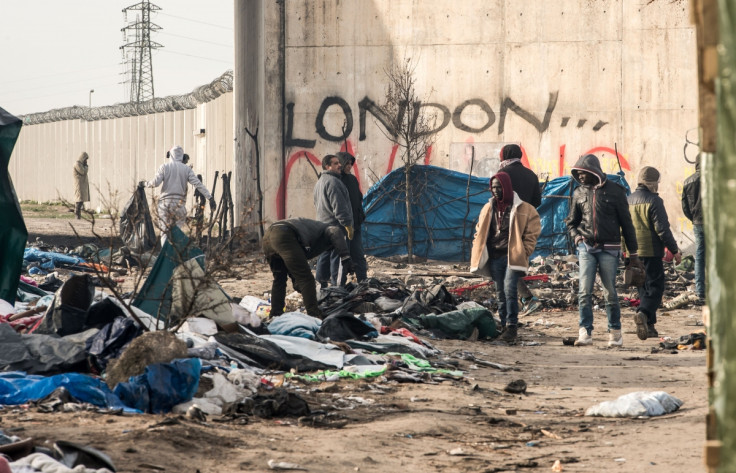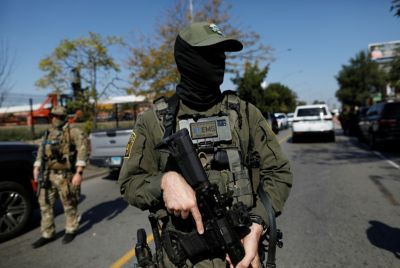David Cameron's warning of a UK 'Calais Jungle' using public's immigration fears to sway EU vote

When a British Prime Minister resorts to suggestions that Brexit could 'bring Calais Jungle to UK' it sounds like panic stations at Number 10. Following Mr Cameron's recent ill-judged reference to 'a bunch of migrants' things are taking a nasty turn.
As one who witnessed, indeed covered, as a Financial Times journalist, the 1975 referendum, I can hardly believe that we are having to go through the whole process again; and as what is known as 'a strong European' I am a lot more nervous about the result this time than I was then.
There are parallels, but important differences. The obvious parallel is that, in both cases, a British Prime Minister resorted to this traditionally unEnglish device – 'this is the kind of thing they do on the Continent' people used to say – in order to resolve differences within their own political parties.
My memory of 1975 is that it always seemed likely that we should vote to stay in the European Community. It seemed obvious that the British were a naturally conservative (not Conservative) nation, and, having so recently joined, would not take a retrograde step.
This time I am not so sure. In some ways I should be, because the OUT campaign seems hopelessly split. Indeed it has descended into farce, a wonderful example being provided by the following gem of a news report, which I promise I am not making up.
One of the principal donors to the Vote Leave campaign, a Mr Peter Crudas, is the founder of the financial trading business CMC Markets. The business is about 'to go public'. But its prospectus warns that a Brexit could be bad news for the company's profits, owing to potentially adverse regulatory changes.
Certainly, the view that Brexit would be bad for British business seems to be widely shared, not least by the chief executives of our major companies, some of whom, such as Sir Michael Rake, chairman of BT, are playing a leading role in arguing the case for staying in.
And then we have the entertaining dispute between various former acolytes of Thatcher as to which way she would vote in the referendum. Since Thatcher's views on Europe were hardly consistent over the years, in the absence of divine intervention this is a controversy which is never going to be resolved.
An important parallel with 1975 is that, with certain well publicised exceptions, the weight of the Cabinet will be in favour of remaining in the European Union. And it must help that David Cameron, having most certainly entertained eurosceptic views in the past, is now strongly in favour of staying in – indeed he has staked his reputation on this outcome.
However, public opinion seems to me to be much more evenly balanced than it was in 1975, notwithstanding the fact that the EU itself ranks very low in the British electorate's list of concerns. And what does not rank anywhere near so low is concern about immigration.
One of the reasons why Mr Cameron has been planning for an early referendum is that he feared that, as happened in 215, there would be huge coverage of the migration and refugee issue in late summer. But, as is obvious from recent news, such coverage has taken place much earlier this year. Clearly, his references to the so-called 'Calais Jungle' are an attempt to turn the public's concerns about immigration in his favour.
Now, we know that opinion polls were discredited by the 2015 British election result, but they remain the best measure of the public mood available, and they indicate a much closer result than they ever did in 1975. The bookmakers, by contrast, indicate that the big money is being placed on No Exit.
Much is at stake, not just Britain's place in Europe, but the future of Europe. I hope that Radek Sikorski, the former foreign Minister of Poland, is not being overoptimistic when calling for Britain to return 'to its rightful position as a leader of the EU'. Repeat : I hope.
© Copyright IBTimes 2025. All rights reserved.






















